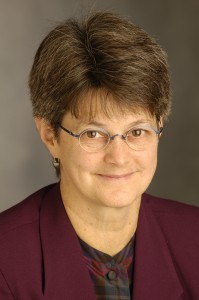Pioneer Press – OPINION
An ambitious public-private campaign is leaving “A New Legacy of Learning” for St. Paul.
Millions have been raised to transform key anchor libraries around the city for St. Paul’s 21st century.
“The final stride to the goal includes an appeal for broad support — in any amount — from the community. The campaign should receive it.”
The effort includes $7 million from the city and a $7.8 million fundraising goal for the Friends of the St. Paul Public Library. The organization, the nonprofit that supports the system, has raised $7.5 million so far in gifts from corporations, foundations and individuals.
The final stride to the goal includes an appeal for broad support — in any amount — from the community. The campaign should receive it.
Campaign funding already has secured major renovations at the Highland Park Library and the Sun Ray Library on the East Side. The buildings — transformed into interactive, multi-purpose spaces that “invite patrons to do more than just read quietly or peruse books on a shelf,” the Pioneer Press’ Frederick Melo wrote — reopened in November to huge crowds and community acclaim.
Enhancements planned for later this year at the George Latimer Central Library downtown will improve customer service and create new meeting and event spaces.
Friends President Peter Pearson expresses confidence the remaining dollars will be raised. St. Paul, after all, loves its libraries. There’s a sense of ownership and recognition of the value they bring to the community, he said. It’s fitting, therefore, “to give every household in the city an opportunity to support this important public-private partnership.”
 Support for the campaign “really represents this broadly held belief that libraries are important for St. Paul,” said Library Director Kit Hadley, describing their work “at the intersection of community learning” and citizen engagement.
Support for the campaign “really represents this broadly held belief that libraries are important for St. Paul,” said Library Director Kit Hadley, describing their work “at the intersection of community learning” and citizen engagement.
The campaign, she explains, equips the buildings for changes that go beyond technology to the way learning itself is changing.
The notion of life-long learning, she said, “is taking on a much different meaning. A while ago, people thought of it as learning for enrichment.” Now, however, it’s the “notion of needing new skills at really almost every stage of life.”
That, Hadley said, is driving changes in libraries, from their layouts, to the skills staff members need, to programming. You can see the changes “reflected in these capital projects,” she added, describing more interactive spaces for children and teens, individual and small-group study areas, spaces for classes and community gatherings and other features.
The changes she’s observing also include people increasingly bringing their own devices to the library to connect to the Internet, a trend with implications for seating, bandwidth and power connections.
The legacy effort to equip our libraries for such changes is the largest capital campaign in the 70-year history of the Friends organization, which is nationally recognized as one of the best library support organizations in the nation. It is a true credit to St. Paul.
Information on ways to give is at thefriends.org. Options include a one-time gift or a pledge, with payments spread over a maximum of three years. Donations of $1,000 or more will be recognized on donor walls installed in the three libraries undergoing renovation.
In making the case for giving, campaign materials note that the appeal comes at a time when public resources are limited, yet we ask our libraries to do more than ever. As a key component of St. Paul’s learning network, we rely on them to serve us broadly, assuring that our youngest citizens are ready for school and that other learners develop the workforce skills they need to succeed.
The case for broad community support of the campaign is a compelling one, especially in a town that loves its libraries.

